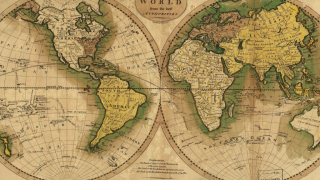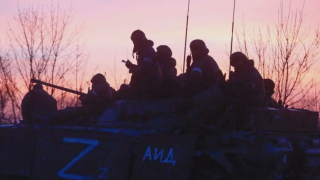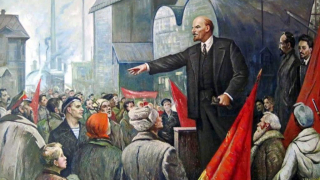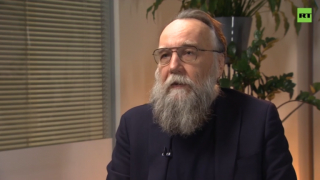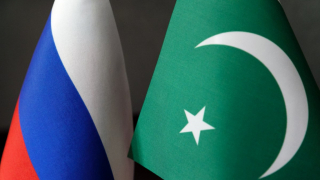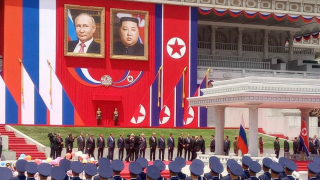Kuwait – Russia: A Friendship of Over a Century
08.02.2018
In February, Kuwait, a small, but highly influential emirate in the estuary of the Arab (Persian) Gulf, is festively celebrating two great holidays at once: the country’s independence in 1961 and the emirate’s liberation from Iraqi aggression in 1991.
In relation to this, we must remember how relations between our countries were established and are developing. The friendly ties and contacts that were developed over a century ago between the gigantic Russian Empire and the tiny Kuwait in the far-off Persian Gulf to this day continue to develop, deepen, and benefit the peoples of the two countries.
As is known, the period from the end of the 19th century to the beginning of the 20th were marked by an escalation of the competition between Great Britain, Germany, and Russia in the Middle East, including the Gulf region. London actively tried to broaden its influence in the region, especially in Kuwait, which at that time was only nominally part of the Ottoman Empire.
While finely manoeuvring between the claims of the great powers, Kuwaiti sheik Mubarak ben Sabah Al-Sabah signed an agreement with Great Britain on the 23rd of January 1899. But it was not just Turkey and Germany, who, while trying to make Kuwait the terminus of the Bagdad railway line, who tried to counteract London’s plans, but Russia as well.
With this goal in mind, in March 1900 the Russian government send the gunship ‘Gilyak’ to the Persian Gulf. The craft became the first Russian military vessel to visit Basra (Iraq), Mukhamerra (Persia), and Kuwait. Capitan second class I. B. Indrenius wrote the following in his report to the head of the Russian naval intelligence service, prince Aleksei Aleksandrovich: “… judging by the happiness and courtesy with which the government received us and by the well-meaning and attention paid to us by the local population in Persia as well as Turkey, I am convinced that the appearance of a Russian military vessel in the ports of the Persian Gulf did not arouse the suspicion of anyone (except the English) of any aggressive Russian goals, but, on the contrary, had an favourable effect and is desirable in the future”.
The practice of Russian ships visiting the Gulf region continued, and in December 1901 the second Russian military vessel, the legendary cruiser ‘Varyag’, anchored itself in the Bay of Kuwait on the 8th of January at five in the afternoon. If we are to speak about the visit of the praised ‘Varyag’, we must make special mention of the following. The imposing size of the cruiser, its great exterior, powerful electric lighting, gigantic weapons, the first orchestra of brass music in the Gulf, the numbers of the crew, the hospitability of the Russian sailors, and the accessibility of the cruiser to the local population: all this made an enormous, unforgettable impression on the Arabs.
A special impression was conferred by the fact that the Russian military vessel, in contrast to its British counterparts, visited the region on friendly terms, thereby demonstrating the goodwill and happy wishes of Russia. The ‘Varyag’ served as the theme of endless conversations in different cities of the Persian Gulf and the Arabian coast for a very long time.
The third Russian military vessel that visited the Gulf’s harbours was the hypermodern five-turbine cruiser ‘Askold’, commanded by captain first class Nikolai Karlovich Reitsenshtein. Along with Russia’s consul in Basra, A. A. Adamov, during November and December 1902 the craft made visits to Muscat, Bender-Bushir (which at the time was the location of all Persian port administrations in the Gulf region) and, keeping in mind the already developed positive contacts with Russia, Kuwait. The boat’s arrival in Kuwait, which took place on the 28th of November, was traditionally warm. The size of the cruiser, and, more importantly, the number of its crew (580 men), the number of its guns (35), and the vessel’s equipment of powerful modern spotlights had an enormous effect on both the Arabs and Persians. Visits of ships like ‘Varyag’ and ‘Askold’, as Russian diplomats said, were “the best reminder of the true power of the far away Russia”.
The last Russian military vessel which visited the Persian Gulf (in February and March 1903) was the cruiser ‘Boyarin’, commanded by captain second class Sarychev. By the way, the ‘Boyarin’s’ visit occurred at the same time as that of the French cruiser ‘Infernet’. The goal of their missions was to demonstrate the “naval power of the two friendly nations” and their capabilities for collective action in the region. The action was calculated to make the needed impression on London and remind the Gulf Arabs that there were also other great powers in the world.
Thus, we can see that Russian-Kuwaiti relations have a long history and are developing on the basis of friendship, mutual respect, and advice on main political and economic questions. It is precisely these fundamental principles of our cooperation that were confirmed in our time of the intensive construction of economic relations.
For example, as was declared by energy minister Aleksandr Novak, Russia and Kuwait are discussing the construction of a nuclear energy station. “We also already have a lot of hopeful opportunities with our Kuwaiti partners. Among them are our Kuwaiti colleagues plans for the building of a nuclear power station. We are now holding the corresponding negotiations, and Rosatom has submitted a proposal”, - the minister said. In 2010, Russia and Kuwait signed a memorandum about cooperation on peaceful nuclear power. The Russian Federation is especially ready to cooperate with Kuwait to develop a peaceful nuclear program, including in the areas of finding and extracting uranium, training operators, conducting tests, and also the construction of the power station if a decision is made by the Kuwaiti government, as Sergei Kirienko, then leader of Rosatom, after the agreement was signed.
To coordinate joint plans, Aleksandr Novak met with Kuwaiti minister of oil, electricity and water Bakhit Shibib Al-Rashidi. He congratulated his Kuwaiti colleague on his recent appointment and also expressed confidence in the further development of relations between the two countries that was reached under his predecessor, Isam Al-Marzuk.
During the negotiations, both sides discussed the status and prospects of bilateral cooperation in the sectors of gas and nuclear energy. The heads of the Russian and Kuwaiti energy agencies expressed dedication to the agreements that were accepted between countries both inside and outside OPEC on the stabilisation of oil markets. “Cooperation on the oil market has become the basis for the widening of economic ties between our countries”, - Aleksandr Novak noted.
What is more, Russia and Kuwait will create a working group for the activisation of cooperation in the sphere of energy, including deliveries of liquid natural gas to Russia, as was reported by Bakhit Al-Rashidi. “We are open to the widening of cooperation with Russian companies, and we have reached an agreement about the creation of a working group for advice and the development of recommendations under the auspices of the wider Russian-Kuwaiti Committee on Joint Cooperation”, - Bakhit Al-Rashidi said. We must note, that ‘Gazprom’ delivered five batches of LNG to Kuwait last year; what is more, our Kuwaiti partners are ready to expand gas usage for the development of power stations, which is why an enlargement of delivery size from Russia is under discussion.
At the same time, consultation sessions on different international issues are intensively being held. For example, Russian foreign minister Sergei Lavrov met his Kuwaiti colleague Sabah Al-Khaled Al-Sabah ‘on the side-lines’ of a high-level UN meeting in New York and discussed actual aspects of bilateral relations with him. “On the 18th of January 2018, ‘on the side-lines’ of a high-level UN Security Council meeting, Russian foreign minister S. V. Lavrov met the deputy head of the council of ministers and minister for foreign affairs of Kuwait Sabah Al-Khaled al-Sabah”, - a Russian Foreign Ministry message tells us. In addition, mention is made of a circumstantial exchange of opinion on actual aspects of bilateral relations as well as on key points of the international and Middle-Eastern agenda, including the current status of Kuwait as a non-permanent UN Security Council member.
Thanks to the very wise economic and political policy of current emir Sheikh Sabah Al-Jasem Al-Sabah, Kuwait made great gains in both foreign and domestic policy. Generally, the emirate is part of the first five world countries with the highest income per capita of the planet. Lately, in a time when many countries are suffering from a long economic crisis, the small emirate in the estuary of the Persian Gulf is developing its achievements in heightening Kuwaiti income and broadening the sphere of social benefits.
It is enough to say that in five years, Kuwait is planning to invest around 120 billion dollars on fossil fuel projects in the country and abroad, as was said by the managing director of the Kuwait Oil Company, Vafa Yusef al-Zaabi, on the Atlantic Council’s energy forum. "We have an investment plan, and we will continue to execute it. In the next five years, we are planning to invest around 120 billion dollars in our fossil fuel branch, mainly in the area of production, in order to heighten it from its current 3,22 million barrels to 4 million barrels a day in 2020”, - Vafa al-Zaabi noted. What is more, according to the director, part of the planned investments will be spent on the processing of carbons, especially abroad in Asia, the US, and Canada. Towards the end of this year, Kuwait is planning to process 1,4 million barrels a day on its different facilities.
While festively celebrating our Kuwaiti friends’ holidays (their National Day and Day of Liberation), we wens Kuwait and its people happiness, prosperity, future success, and a strengthening of the friendship to the benefit of both countries.
Translated from the Russian by V.A.V.





